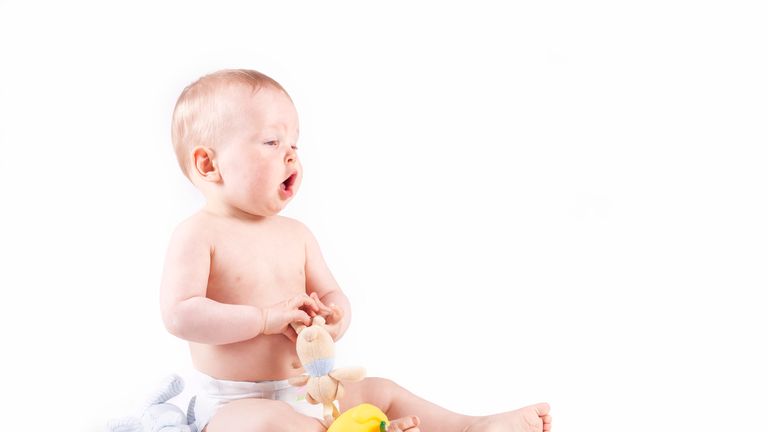Hiccups are crucial to brain development in babies and may help them learn how to regulate their breathing, a study has found.
Moreover, the findings suggest hiccupping in adults could be a reflex left over from infancy.
Neuroscientists at University College London (UCL) discovered that the involuntary and often annoying process – caused by sudden, spontaneous contractions of the diaphragm muscle – triggers electrical activity in the brain which could support development.

Research associate Kimberley Whitehead, the study’s lead author, said: “The reasons for why we hiccup are not entirely clear, but there may be a developmental reason, given that foetuses and newborn babies hiccup so frequently.”
Premature babies are particularly prone to hiccups and spend around 15 minutes a day hiccupping.
Hiccups can also be detected in the womb as soon as nine weeks into pregnancy.
The study, published in the Clinical Neurophysiology, was based on the brain scans of 13 pre-term and full-term babies ranging from 30 to 42 weeks gestational age – the period of time between conception and birth.
Hiccups were monitored with sensors on the babies’ torso, while brain activity was recorded with electrodes attached to the scalp.
The study found that contractions of the diaphragm muscle from a hiccup corresponded with a pronounced response in the brain’s cortex in the form of three brainwaves.
Researchers believe the third brainwave may link the “hic” sound of the hiccup with the feeling of the muscle contraction in the diaphragm.

Dr Lorenzo Fabrizi, a senior research fellow at UCL and the study’s senior author, said: “The activity resulting from a hiccup may be helping the baby’s brain to learn how to monitor the breathing muscles so that eventually breathing can be voluntary controlled by moving the diaphragm up and down.
“When we are born, the circuits which process body sensations are not fully developed, so the establishment of such networks is a crucial developmental milestone for newborns.”
While the cause of hiccups in adults remains a mystery, certain things like stress, excitement or eating can trigger the muscle contraction.
Ms Whitehead said: “Our findings have prompted us to wonder whether hiccups in adults, which appear to be mainly a nuisance, may in fact by a vestigial reflex, left over from infancy when it had an important function. “







GIPHY App Key not set. Please check settings